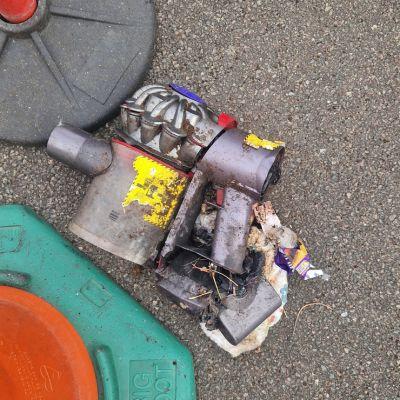
We’ve recently had another fire in one of our refuse collection vehicles (RCVs), caused by batteries being put in a household bin.
Thankfully, no one was hurt – but these incidents are extremely dangerous and can put our collection crews, other road users, and the public at serious risk.
Please do not put batteries in your general waste or recycling bins.
Batteries can catch fire or explode when crushed in bin lorries or at recycling facilities. Even small everyday batteries, such as those from remote controls, toys, vapes, or electric toothbrushes can cause fires if disposed of incorrectly.
How to dispose of batteries safely:
-
Do not put them in your black, green or red-lidded bin
-
Take them to a local battery recycling point – many supermarkets, shops and household waste sites have dedicated battery bins
-
Use the Recycle Now website to find your nearest drop-off point
Examples of batteries that need special disposal:
-
AA, AAA, and coin batteries
-
Rechargeable batteries from phones, cameras or tools
-
Lithium-ion batteries from vapes, e-bikes or laptops
Single-use & rechargeable batteries
-
AA, AAA, C, D, 9V batteries
-
Coin or button batteries (e.g. for watches, toys, car key fobs)
-
Rechargeable NiMH and NiCd batteries (e.g. in cameras, remotes, toys)
Batteries built into electronic devices
-
Mobile phones, tablets, and laptops
-
Power tools and electric toothbrushes
-
Remote controls and cameras
-
Hearing aids
-
E-cigarettes and disposable vapes
-
Wireless headphones and speakers
-
Electric scooters, hoverboards, and e-bikes
Lithium-ion & lithium-polymer batteries
-
These are especially risky and can easily catch fire when damaged or crushed.
-
Found in vapes, e-bikes, drones, laptops, power banks, etc.
If you’re ever unsure about how to dispose of something safely, please check the Recycle Now website or leave feedback on the relevant website page, where a member of staff can answer your enquiry.